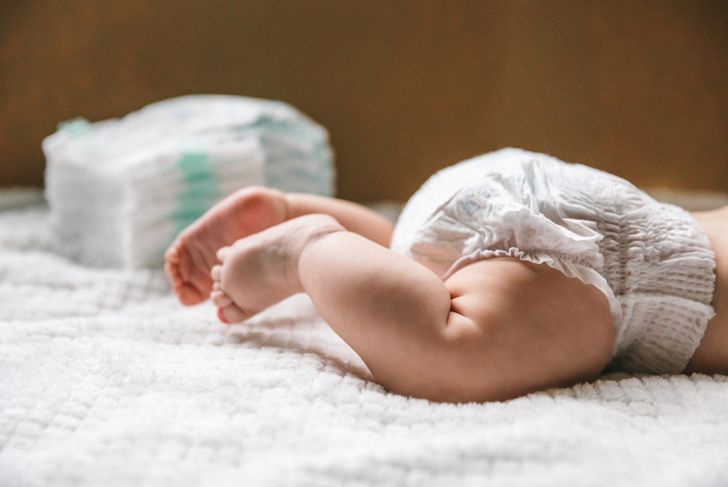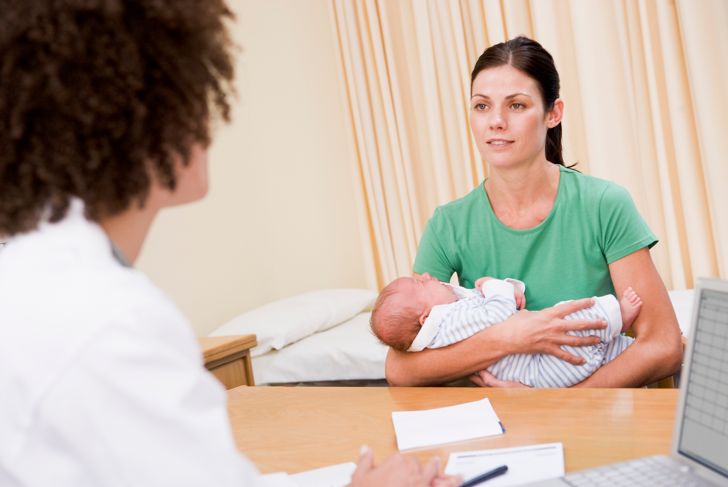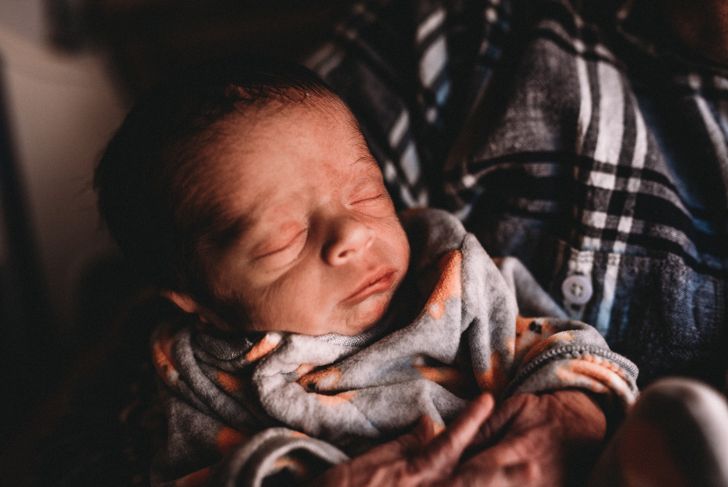The one-month checkup is part of the well-baby exams that monitor your infant’s growth, development, and overall health. Doctors typically recommend the first exam happen within a few days of birth. The following exams are scheduled every few weeks, and, later, every few months until the baby is one year old.During the one-month checkup, the doctor will take the baby’s measurements, perform a head-to-toe exam, and ask questions related to sleep, mood, and other day-to-day activities.
The Baby’s Measurements
The one-month checkup usually begins with measurements. The doctor will weigh them on an infant scale.Length is measured when the baby is placed on a flat surface with their legs stretched out. Head circumference is recorded with a measuring tape. These measurements are used to create a growth chart to evaluate the growth curve, which compares how your baby grows to the growth of other babies of the same age.
Physical Exam
The doctor starts the head-to-toe physical examination with the evaluation of the head, paying special attention to the soft spots — called fontanelles— as well as the shape of the head, the eyes, ears, and mouth. Heart and lung function are assessed with the stethoscope.Then, the doctor will check muscle tone and reflexes and examine the skin for jaundice or rashes. They will check that the umbilical cord stump has fallen off and that the belly button is in the process of healing. The exam also includes the evaluation of the genitalia, hips, and legs.
Motor Skills
The doctor evaluates motor skills during the exam and will ask the parents for more details. Although the nervous system is immature at birth, babies have plenty of motor skills in the first month.They are born with reflexes like sucking and are able to latch onto the breast immediately after birth. If the parent places a finger inside the baby’s palm, the baby closes the fist around it. Babies who are startled respond quickly by splaying the arms and moving their legs and then pulling them in. This is known as the Moro reflex.
Communication
During the first month of life, babies communicate their needs mostly by crying. They cry if they get hungry, have a wet diaper, or need sleep. Parents quickly learn the individual reasons for these cries and what actions or items can comfort them. For example, rocking, swaddling, or giving a light massage to the baby.At the one-month exam, the doctor will ask about any potentially abnormal crying. Excessive crying may require medical evaluation to rule out colics or other conditions.
Sleep
Parents should understand healthy sleep patterns for their new baby and talk to the doctor if they notice unusual changes. During the first weeks of life, newborns sleep a lot, up to 18 hours broken into multiple short periods. Their sleep pattern is also different from adults: they spend more time in REM sleep than non-REM, which means they wake up easily. While they’re in REM sleep, it is normal to see the baby making small movements and their breathing speeding up. Parents can help the baby adjust to the sleep-wake cycle by limiting activities during the day and creating a quiet, relaxed, dark environment at night.
Eating Patterns
Similarly to sleep, the eating patterns of babies are quite different from adults, and this is another key topic discussed at the one-month checkup. If breastfed, an infant normally eats every two to three hours, or about eight to 12 times daily. A bottle-fed baby tends to eat six to eight times.When hungry, babies move their heads back and forth looking for a breast, or turn their mouths when the parent touches their cheek. When they feel full, the babies may fall asleep, pull away from the breast or bottle, or keep their mouths closed.
The Baby’s Diapers
At the one-month checkup, the doctor will likely want to know about your baby’s bowel movements. The number of wet and dirty diapers initially increases every day, and by the fifth day after birth, the average infant will have six or more wet diapers and at least three bowel movements daily. The color of the stool changes from dark in the first few days to golden yellow. The number of diapers changed, and the weight of the baby are two clues that the baby eats enough.
Questions And Answers
The doctor asks many questions related to sleep, feeding, number of diapers, activity level, and even temperament. During this visit, the parents have the opportunity to ask all the questions they may have. This is also a good time to talk to the doctor about any depression or sadness the parents are feeling; they can advise on where to seek help for PPD and other common issues.
Premature Babies
At the checkup, the doctor can set the minds of parents with premies to rest by clarifying different milestones. If a parent is reading all the baby books, they will likely see differences in their prematurely born baby, but that’s normal. Premature babies will likely achieve the milestones according to their due date. For example, a baby born one month earlier may be 8 weeks before they meet average one-month milestones.
Considerations
Parents should seek medical advice before the one-month exam if they notice something is not right. For example, if the baby doesn’t gain enough weight, is not wetting at least six diapers daily, or does not have regular bowel movements. Too much sleep, excess irritability, changes in urine, stool color, or generally looking unwell are all reasons to consult a doctor before the regular check-up.

 Home
Home Health
Health Diet & Nutrition
Diet & Nutrition Living Well
Living Well More
More




















